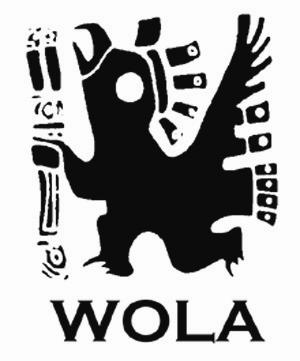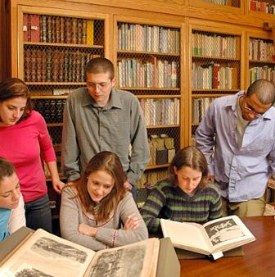From Protest to (PRODUCT) RED: Generational Shift in U.S. Human Rights Activism
Date: Thursday, 10 February 2011
Time: 5:00 PM
Location: Rare Book Room
Contact Information: Patrick Stawski, 919-660-5823 or patrick.stawski(at)duke.edu
The Consortium in Latin American and Caribbean Studies conference kicks off with a celebration of anniversaries: 30 years of human rights activism by the Washington Office on Latin America (WOLA); the 50th anniversary of the Inter-American Human Rights Commission; and the 100th anniversary of the Organization of American States.
Since WOLA’s founding in 1974, both the human rights community and the community of nongovernmental organizations working on Latin American issues have grown and evolved. Joe Eldridge, Alex Wilde, George Vickers, and Joy Olson—all current and former Executive Directors of WOLA—will discuss how the organization rethinks its position within these overlapping sectors to determine the best contribution it can bring to their collective work. The panel, moderated by Robin Kirk, Director of the Duke Human Rights Center, will explore how human rights challenges and the activism(s) that address them have changed and adapted to the shifting currents of national and international policy and history.
WOLA is the premier U.S.-based human rights organization working on Latin America. The Archive for Human Rights is the repository for the WOLA archives. Since 2008, WOLA and Duke University have co-sponsored the WOLA-Duke Book Award for the best non-fiction work on human rights and social justice in Latin America.
This event is presented by the Archive for Human Rights and co-sponsored by the Duke Human Rights Center and the Consortium in Latin American and Caribbean Studies.
Post contributed by Patrick Stawski, Human Rights Archivist.











